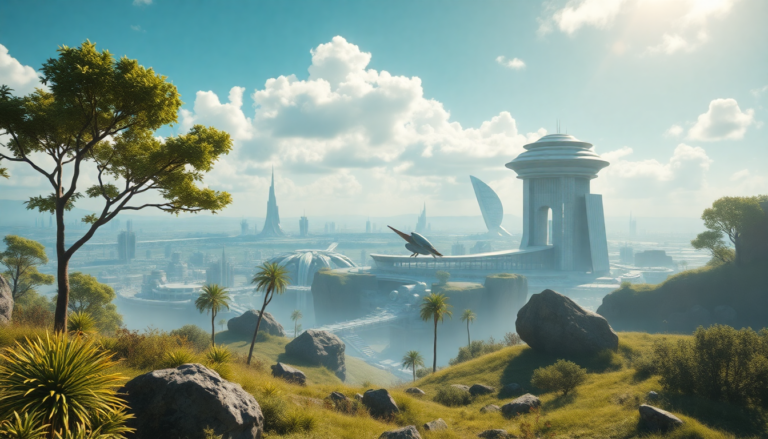Argomenti trattati
The rise of artificial intelligence in gaming
Imagine entering a gaming universe where every character reacts in real-time to your decisions, where the environment shifts dynamically, and where your journey is distinctly tailored to you. This is not a futuristic vision; it is the current reality of artificial intelligence (AI) within the gaming world. The gaming industry is experiencing a seismic shift, driven by AI’s capabilities to enhance storytelling and optimize monetization strategies. Valued at $2.3 billion in 2023, the AI in gaming market is projected to explode to $28 billion by 2033, with an impressive compound annual growth rate (CAGR) of 28.4%. Some forecasts even predict a remarkable $27.47 billion by 2029 with a staggering 42.3% CAGR.
Market dynamics and growth potential
The broader gaming industry is thriving, reaching a staggering $241.7 billion in 2024 and expected to soar to $535.3 billion by 2033. The rapid growth of the AI segment in gaming is fueled by players’ increasing demand for immersive experiences and the necessity for studios to remain competitive. In 2023, the Asia-Pacific region led the market, claiming 45.1% share with $1.03 billion in revenue. This dominance is driven by major tech players in countries like China, Japan, and South Korea, all bolstered by a booming gaming population rooted in smartphone technology.
Why AI matters in modern gaming
AI has evolved from being a flashy addition to a fundamental component of contemporary gaming. It plays a crucial role in creating expansive worlds and predicting player behaviors, becoming essential for studios aiming to deliver unparalleled gaming experiences. For investors, companies leveraging AI technology present attractive opportunities. Now is the optimal moment for industry players to adopt AI tools to retain their competitive edge.
Financial implications for the gaming industry
The gaming sector is a financial powerhouse, with mobile gaming leading the charge, projected to account for $92.6 billion (49% of the total market) in 2024. By 2033, the industry is set to expand at a steady 8.3% CAGR to reach an astonishing $535.3 billion. AI enhances revenue generation through innovative monetization strategies. For instance, AI-driven in-game recommendations can boost purchases by 30% by identifying the perfect items to suggest at critical moments. In mobile gaming, AI-optimized ad targeting can increase revenue by 25% by delivering relevant ads that engage rather than annoy players. Dynamic pricing models, guided by AI insights, help studios maximize profits by adjusting prices based on player behavior.
AI’s impact on game development
The development of a game is a monumental task, often requiring millions of dollars and years of effort. AI is revolutionizing this process by significantly reducing costs. Procedural generation techniques, where AI generates expansive game worlds like those found in No Man’s Sky, can slash asset creation costs by up to 50%. Furthermore, automated testing powered by AI can reduce quality assurance time by 30-40%, identifying bugs more efficiently than human testers. Localization, often a costly challenge for global game releases, is streamlined through AI voice synthesis, reducing dubbing costs by 40-50%.
Enhancing player engagement
AI is not only optimizing development processes but also enriching the gameplay experience. Non-player characters (NPCs) in games like The Last of Us Part II respond dynamically to player actions, enhancing engagement by 40%. Adaptive difficulty systems assess player skill levels and adjust challenges in real-time, leading to a 35% increase in engagement. Smarter matchmaking in multiplayer games connects players with similar abilities, which can enhance retention rates by 15-20%. Additionally, AI-driven live translation capabilities break down language barriers, improving cross-region engagement by 50%.
The endless possibilities of AI in gaming
The potential applications for AI in gaming are boundless. Generative AI, responsible for crafting dynamic narratives and worlds, is anticipated to grow by 300% over the next five years, offering games with infinite replayability. Cloud gaming, enhanced by AI for seamless streaming experiences, is expected to reach a market value of $30 billion by 2030. In the realm of esports, over 80% of professional teams are utilizing AI analytics to refine their strategies. The integration of virtual reality (VR) and augmented reality (AR) gaming, enhanced by AI, is predicted to reach $90 billion by 2028, with titles like Half-Life: Alyx setting the standard for realistic interactions and physics.
Emerging technologies and future trends
Emerging technologies such as 5G and edge computing are minimizing latency, paving the way for seamless AI-driven gaming experiences. From AI-enhanced storytelling to real-time world generation, the future of gaming promises engaging experiences that feel alive and infinitely diverse. AI is not merely a tool; it is the driving force behind a new era of gaming, with dynamic environments and NPCs amplifying engagement by 40%, analytics boosting retention by 25%, and innovations in VR/AR creating immersive gameplay. Cloud gaming optimizations ensure smooth performance while AI-driven automation cuts costs by 50%, allowing studios to focus on creativity.
Join the revolution in gaming
Whether you are conceptualizing your first game or seeking to integrate AI into an existing project, the future of gaming is already here and is powered by generative AI. At Ment Tech, we don’t just develop games; we collaborate with you to create meaningful experiences. Our team is committed to guiding you through every stage, from ideation to launch, blending creativity with AI innovation and years of practical experience to bring your vision to life.
Let’s transform your concept into a next-generation gaming experience that will leave a lasting impression. Are you ready to embark on this extraordinary journey? Get in touch with us—together, we can build the future of gaming.

